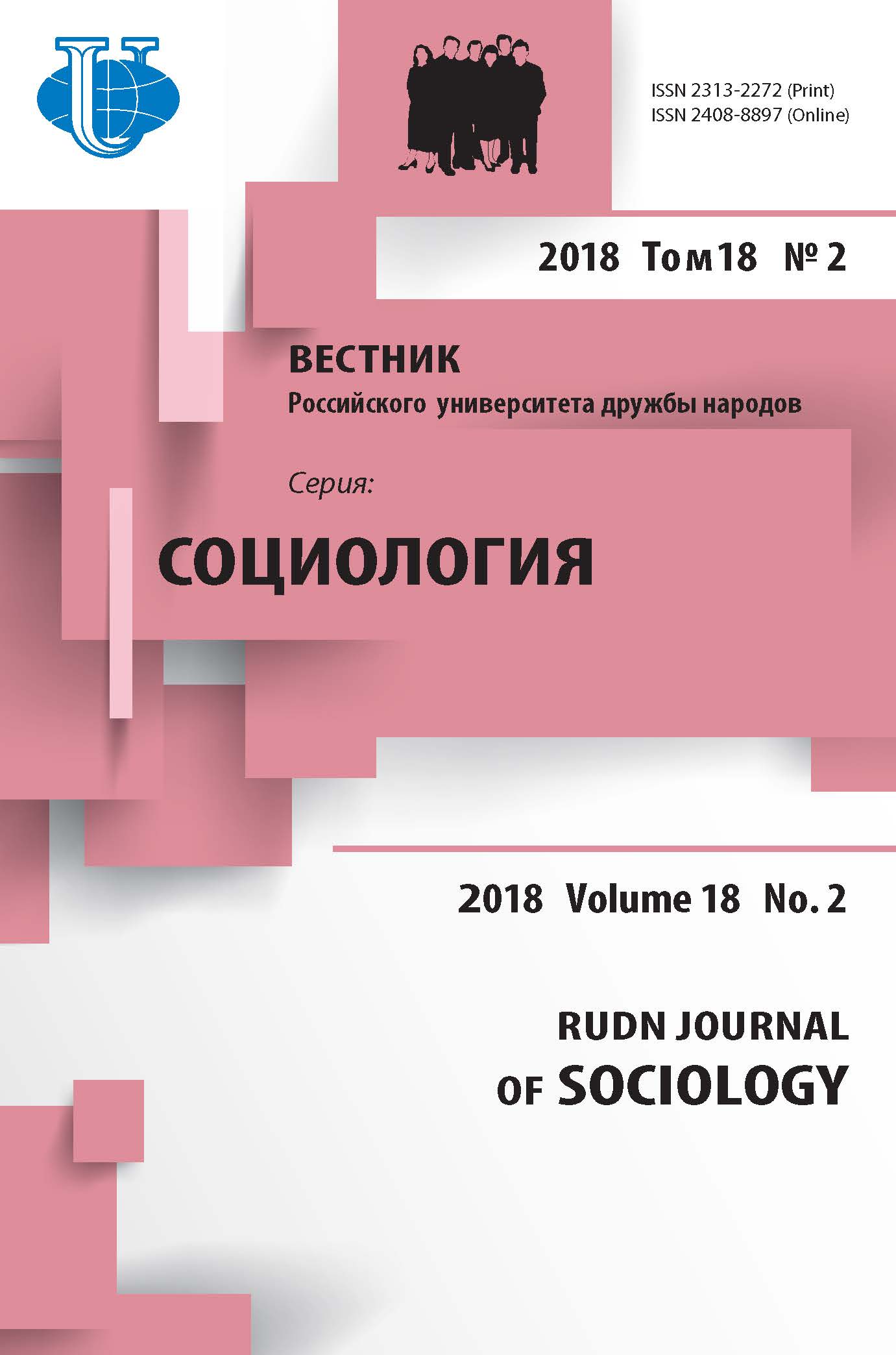Gustaf Steffen as a sociologist and politician
- Authors: Gritsenko SA1, Chernova NI1
-
Affiliations:
- Moscow Technological University (MIREA)
- Issue: Vol 18, No 2 (2018)
- Pages: 238-249
- Section: Theory, Methodology and History of Sociological Research
- URL: https://journals.rudn.ru/sociology/article/view/18450
- DOI: https://doi.org/10.22363/2313-2272-2018-18-2-238-249
Cite item
Full Text
Abstract
The authors conduct analysis of the scientific and publicist legacy of the Swedish sociologist Gustaf Steffen in the framework of the Swedish and European history at the turn of XIX-XX centuries based on the scientific and political works of G. Steffen, his contemporaries’ responses to these works, mass media reports and a number of official acts of the Riksdag while Steffen was a member of it. In different periods of his life, Steffen’s methodology combined elements of Marxism, Nietzsche’s “elitist ideas”, both M. Weber’s and G. Simmel’s German school tradition, and “intuitive philosophy” of H. Bergson. In general, Steffen’s sociology can be considered a theoretical macro-analysis of the society’s historical development. Although Steffen was the first professor of sociology in the Swedish history (1902), he did not manage to create a scientific school, and after his death in 1929, the development of Swedish sociology was interrupted for almost twenty years. Only after the Second World War T. Segerstedt (Jr) established a school following the American scientific tradition of pragmatic analysis based on quantitative methods. The main reason for the scientific isolation of Steffen was his pro-German position in the First World War: as an ‘activist’ he aimed at drawing Sweden into the war on the German side, but failed and finished his political career in the early 1920s. There are some features the Swedish sociological tradition inherited from Steffen’s theory - “Bergsonism” in the form of analysis of social circumstances of individual life, principal “historicism”, and interdisciplinarity. Thus, Steffen is a true pioneer of the Swedish sociology whose ideas are still relevant.
About the authors
S A Gritsenko
Moscow Technological University (MIREA)
Author for correspondence.
Email: gricenko@mirea.ru
-
Prosp. Vernadskogo, 78, Moscow, Russia, 119454N I Chernova
Moscow Technological University (MIREA)
Email: chernova@mirea.ru
-
Prosp. Vernadskogo, 78, Moscow, Russia, 119454References
- Gladysheva E.V. Vlijanie nravstvennyh tsennostej na uspeshnost ekonomicheskoj dejatelnosti (na primere otechestvennyh predprinimatelej XIX—XX vv.) [Moral values’ impact on the success of economic activities (on the example of Russian entrepreneurs in the XIX—XX centuries]. Moskovskij Tekhnologicheskij Zhurnal. 2017: 5 (4) (In Russ.).
- Gritsenko S.A. Progermanizm v obshchestvenno-politicheskoi zhizni Shvetsii (1905—1916) [‘Pro-Germanism’ in the Swedish Social-Political Life in 1905—1916]. PhD thesis. Moscow; 2017 (In Russ.).
- Gritsenko S.A. Rossija i Germanija v trudah Gustava Steffena [Russia and Germany in Gustaf Steffen’s Writings]. Istoricheskie dokumenty i aktualnye problemy arkheografii, istochnikovedeniya, otechestvennoj i vseobshhej istorii Novogo i Novejshego vremeni. Moscow; 2015 (In Russ.).
- Kahn A.S. Istoriya Shvetsii [History of Sweden]. Мoscow; 1974 (In Russ.).
- Månsson P. Lodka na alleyakh parka. Vvedenie v sotsiologiyu [A Boat on the Parkways. Introduction to Sociology]. Мoscow; 1994 (In Russ.).
- Novikova I.N. Mezhdu molotom i nakovalnei: Shvetsiya v germano-rossiiskom protivostoyanii na Baltike v gody Pervoi mirovoi voiny [Between the Hammer and the Anvil: Sweden in the German-Russian struggle in the Baltic in the First World War]. Saint Petersburg; 2006 (In Russ.).
- De socialdemokratiska aktivisterna. Kalmar. 1915; October 29.
- Eriksson I. Den svenska sociologins dolda historia — fallet Gustaf Steffen. Sociologisk Forskning. 1994; 31 (3).
- Gustafsson A. Mellan “höger och vänster”. Branting och Palmstjerna. In: Lindhagen J. (Ed.). Bilder av Branting. Stockholm: Tiden; 1975.
- Lilliestam Å. Gustaf F Steffen. https://sok.riksarkivet.se/Sbl/Mobil/Artikel/20049.
- Lilliestam Å. Gustaf Steffen: samhällsteoretiker och idépolitiker. Stockholm: Akademiförlaget-Gumperts; 1960.
- Magdaleni S. Några iakttagelser om sociologins historia — och samtid. Sociologisk Forskning. 2007; 44 (2).
- Riksdagens protokoll. Första kammaren. 1916; 3 (70).
- Robertson J.M. War and Civilization. An Open Letter to a Swedish Professor. London: E.P. Dutton & Co.; 1916.
- Steffen G. Demokratie und Weltkrieg. Jena: Eugen Diederichs; 1916.
- Steffen G. England als Weltmacht und Kulturstaat. Band 2. Stuttgart: Hobbing und Buechle; 1907.
- Steffen G. Krieg und Kultur. Jena: Eugen Diederichs; 1915.
- Steffen G. Russia, Poland and the Ukraine. Jersey: Ukrainian National Council; 1915.
- Steffen G. Weltkrieg und Imperialismus. Jena: Eugen Diederichs; 1915.
- Steffen, Gustaf Fredrik. Nordisk familjebok. 2:a upplagan. Stockholm: Nordisk Familjeboks Forlags Aktiebolag; 1917.
- Tingsten H. The Debate on the Foreign Policy of Sweden. 1918—1939. London: Oxford University Press; 1949.
- Wisselgren P. Sociologin som inte blev av: Gustaf Steffen och tidig svensk socialvetenskap. Sociologisk Forskning. 1997; 34 (1—2).
- Zetterberg H.L. Traditioner och möjligheter i nordisk sociologi. Sociologisk Forskning. 2013; 50 (3—4).














